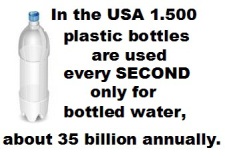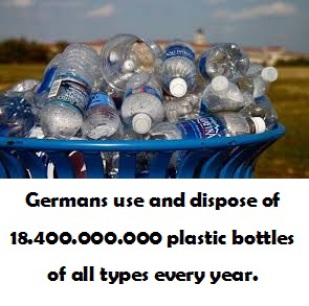
Global Plastic Bottle Statistics Some surprising numbers
Plastic bottles are both wonderful and terrible at the same time. Plastic bottles are an inexpensive and practical way to store and distribute liquids. The problem is that we only use them once and when their liquid content is consumed, then they have no further use and we throw them away. Right now plastic bottles are “single-use plastics”. Only about 23% are effectively recycled and the rest end up in landfills or in the ocean where they can take up at least 100 years to become biodegradable and represent a big environmental problem.
Every day we consume plastic bottles either directly or indirectly. They are used for mineral water, sugary drinks, motor oils, milk, olive oil, fruit juices, detergents and chemicals etc. When we drink coffee in a café the chances are the milk has been transported in plastic bottles. Every evening thousands of workers clean hospitals, universities and offices using cleaning materials and chemicals, all stored in thousands of
plastic bottles.
Empty bottles are discarded generally with the sealing cap firmly in place which make them difficult to compact when the sanitary authorities collect them.
With a global population of 7.4 billion and each person consuming an average of 150 plastic bottles annually, then we can begin to understand the magnitude of the problem.

